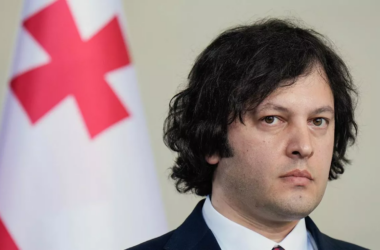Moldova presents us with something of a case study for the failure of European foreign policy planning. Whereas Europe has generally adopted a strongly oppositional stance towards Russia in recent years, it has done so without first pivoting its energy imports away from its eastern neighbour. In this regard, European geopolitical projections do not seem to have been solidly grounded in the block’s interests, energy security and supply-chain infrastructure.
This is all the more striking, however, when it occurs in the context of a country whose dependence on Russia is particularly stark.
Moldova’s political landscape is characterized by a delicate balance between Russia and the EU. The narrow victory in the recent referendum on EU accession and the re-election of pro-European President Maia Sandu highlight these divisions at the domestic level.
The upcoming parliamentary elections are crucial for Sandu’s EU-integration ambitions, with her Party of Action and Solidarity (PAS) facing challenges from opposition groups who would prefer a closer relationship to Russia.
Exacerbating these tensions is Russia’s looming gas cutoff, a move many analysts perceive as a tactic to destabilize Moldova and influence its elections. Russia’s state-owned Gazprom’s decision to halt gas supplies stems from a disputed debt, which Moldova’s government contests, accusing Russia of employing energy as a political weapon. Moldova maintains that it owes $8.6 million, a fraction of the $709 million claimed by the Russian oil and gas group and which Gazprom said it would seek to recover.
The gas cutoff will severely impact the Kuciurgan power plant in Transnistria, a breakaway region heavily dependent on Russian gas. Transnistria’s declaration of a state of emergency underscores the potential for instability. President Sandu has accused Russia of “energy blackmail,” affirming the government’s commitment to securing alternative energy sources and providing humanitarian assistance to Transnistrian residents.
Moldova’s government has taken steps to address the crisis, including declaring a state of emergency in the energy sector, implementing energy-saving measures, and seeking alternative energy sources. Prime Minister Dorin Recean has condemned Gazprom’s actions, characterizing them as part of a broader Kremlin strategy to undermine Moldova’s stability, and has announced plans to contest the alleged debt and potentially nationalize Moldovagaz, in which company Gazprom owns a majority stake.
Moldova’s difficulty in attempting to reduce its reliance on Russian energy, including diversifying its supply and sourcing gas from European markets, highlight the overriding importance of geography and the degree to which energy needs render states geopolitically dependent (one way or another, Moldova will be a vassal to a larger power-broker).
Experts suggest that Russia’s gas cutoff is a calculated manoeuvre to exploit Transnistria’s dependence on Russian energy, thereby straining Moldova’s resources and fostering political instability. Pro-Russian parties may leverage the crisis to their advantage, blaming the government for rising energy costs and potentially swaying public opinion ahead of the 2025 elections.
The Carnegie Endowment, for its part, posits that the gas crisis could inadvertently present an opportunity for Moldova to explore reunification with Transnistria. Russia’s apparent disinterest in maintaining gas flow to Transnistria, coupled with the region’s economic vulnerability, may create conditions conducive to resolving the separatist conflict. However, Moldovan leaders are ill-prepared to deal with the fall-out on purchasing power, and the impending crisis will likely redouble against pro-European factions in Moldovan politics:
“Rising gas prices will inevitably feed through into price inflation for other goods and services, angering Moldovans. That unhappiness will damage the popularity of the pro-European Union ruling party at parliamentary elections that will take place within six months.”
We began by noting that the EU seems to pursue its foreign policy partly unencumbered by practical considerations like energy security. We may understand this as having to do with block’s broad alignment with Washington. But this dynamic is particularly surprising, and damaging, when manifesting in a country like Moldavia, whose energy and purchasing power are so clearly dependent on Russia. The analyst of international relations should not underestimate the influence of soft power and promissory notes like EU membership, which can trump clear and present interests.




